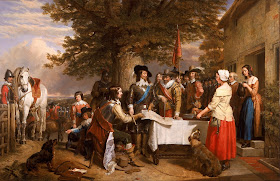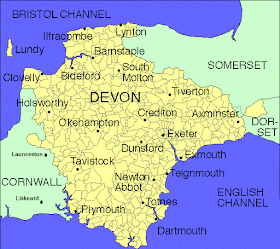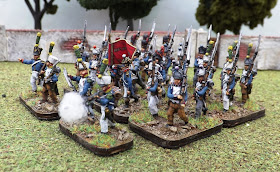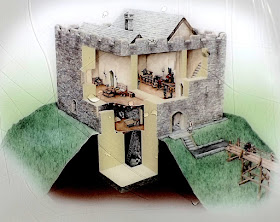 |
| JJ's Roman's - terrorise not only the Dacian's but some wargamers from getting involved in the hobby- really? |
Every now and then "JJ's Wargames" likes to go off on one and start a debate rolling on a theme that is common to most of us in the hobby. Recent examples included the loss and retention of the painting mojo, which seemed to strike a chord with many.
http://jjwargames.blogspot.co.uk/2015/10/the-perennial-problem-how-to-avoid.html
Painting and modelling is an important aspect of our hobby, otherwise we would likely be solely board gamers, and JJ's has always been a blog keen to support other like minds that enjoy that aspect.
Therefore I felt the need to respond to an article by Arthur Harman in June's, Miniature Wargames magazine entitled 'The look of the thing, Artistic licence in wargaming'
Firstly I think I should explain the expression of making the subject of debate an "Aunt Sally" which may not be a term familiar to all, certainly outside the UK. The definition of the expression is as follows.
Definition of Aunt Sally:
a game played in some parts of Britain in which players throw sticks or balls at a wooden dummy.
• a dummy used in the game of Aunt Sally. plural noun: Aunt Sallies
• a person or thing set up as an easy target for criticism. "today's landowner is everyone's Aunt Sally"
I was really surprised to read the article by Arthur Harman in Miniature Wargames magazine, that posed the question;
"whether aesthetics should be allowed to dominate our enjoyment of a wargame, or deter us from getting stuck in. Is our terror of the roving photographer or blogger to blame?"
I have heard and seen the odd comment that there is a body of opinion that supports this proposition and had always thought it to be a very outlandish idea, and not likely to be taken seriously in the mainstream of the hobby, perhaps I was wrong. If that is the case then I think this idea needs challenging.
As you can see the question has two parts to its proposition:
- firstly it rather presupposes that the reader agrees that aesthetics already dominates our enjoyment of the hobby.
- and secondly suggests that we are terrorised by the "wargames fashionistas" who will come and make us feel bad about ourselves because we can't live up to the "Aunt Sally" of aesthetic perfection that it suggests we are all in pursuit of.
Really? The thought that anyone could allow themselves and their approach to their hobby to be directed by what others deemed to be a requirement to take part, I find quite bizarre. I personally wouldn't give anyone the right to make me feel that way and I don't know anyone in the circle of gamers I play with who would. Perhaps this thinking is a symptom of the modern fashion of games systems requiring everyone to use the same rules and figures in the same way, waiting for pronouncements on high as to what the "same way" is.
After reading the question and giving it some consideration my curiosity was fired and I pressed on into the article, which went on to quote Neil Shuck;
"Miniature Wargaming ..... is actually quite a complex hobby..... it's not just about the wargame rules and game, but about collecting, assembling and painting model soldiers...." and that "it could be weeks (or indeed months or even years) before an army is painted and ready to put into the field of battle. This is a huge hurdle, and has surely put off untold numbers of would-be wargamers due to large commitment of time, resources and skills required..."
The author then agrees with Neil Shuck's quote stating that he could think of many campaigns or periods not embarked upon for this reason.
So again let's think about the implications covered in the quote;
- Miniature Wargaming is quite a complex hobby
- It can be time/finance consuming, building a collection of figures
- The skills required and the commitment to complete a given project could put players off from getting involved in the first place.
If we replaced the words "Miniature Wargaming", with "Radio Controlled Model Aircraft building" or "Piano playing" or "Horse Riding" or "Deep Sea Fishing" or dare I say "Model Railway Collecting", those criticisms could be levelled at lots of hobbies some a lot more complex, time/finance consuming and skill set requiring than ours.
Come on chaps, if we are as passionate, as I know from the comments received on this blog that many of us wargamers are, about our hobby, we don't care about the little list of "asks" that wargaming might demand of us to build the collection and run the games we want to play, because we can't help ourselves, we love it and we will move hell and high water to do what we want to do; even if that means learning the modelling skills, rule sets, finding the resources and time and building friendships with like-minded folk who want to play the games we do, and by our example bringing others into this great hobby.
 |
| An early 19thC aquatint that is recommended as the inspiration for our games |
The web and magazines are full of articles and information out there to help us in our pursuit of wargaming nirvana, something older generations (I include myself) really appreciate as no such quantity of resource existed when we started in the hobby. From my experience there are lots of people out there happy to share their skills and encouragement to help bring new people into it and there has never been a better time to get involved, with the figure ranges, terrain options and great painting/modelling resources available.
This blog like many others is dedicated to encouraging others to get involved in wargaming at whatever level they choose to, but not afraid to also encourage the pursuit of aesthetics in it as well; and I felt impelled to answer the criticism implied in the article and to offer a much more positive slant than the diagnosis and prescription that followed of rejecting the production of great looking games and collections in favour of the alternative and returning to bare based figures, functional terrain with contour stepped hills and figures all in the same pose.
Hey, if the latter approach does it for you, you will not hear or read any criticism from this blog, each to their own as I have already stated, but conversely don't expect any support for the idea that great aesthetics in wargames puts people off from getting involved, if anything I believe the reverse is more true.
I would not have been attracted into wargaming if all the books on the subject in the mid seventies had been in the style of Don Featherstone (God bless him) and Tony Bath with the functional looking games they produced. It was Peter Gilder and his fantastic looking games, that I had no hope of recreating at the time, that fired my enthusiasm and set the goal to emulate. I have memories of the frustration of not being able to get my games to look that good, but also the desire to get better and add to my skills.
That said I carried several Don Featherstone tomes around with me for months re-reading the text rather than admiring the pictures, which I rejected as being what the game should look like for me. Note these statements are personal, and I don't expect others to feel the same way, but likewise I don't think we should allow others to determine how we feel about our hobby and the way we want to do it.
 |
| A JJ's version of an early 19thC aquatint |
I think the picture of the hobby that is presented to the wider world is important to attracting more people into it and I think the best aesthetically looking collections and games go a huge way to doing that, but also the need to present what wargaming has always been, namely a welcoming, encouraging, supportive community of hobbyists producing great variation on the theme.
I don't think we should buy into the negative way of thinking that says excellence puts undue pressure on individuals to live up to - rubbish! We only put pressure on ourselves if we decide to think that way and a more positive way to think is that I will play the games I want to in my way with people who also enjoy a similar approach and I will decide what I consider excellent and what I want to emulate/copy into my own games.
In addition I don't want to buy in to the mantra of "I can't".
I can't paint, I can't find the time, I can't not help feeling pressurised by others. If you think like that then you are right, you can't. But the good news is that you don't have to think that way.
I regularly hear people on pod-casts saying they can't paint and some even being proud that they can't and don't paint despite being their to promote a hobby that would suggest a modicum of painting being required.
We don't play board games we play tabletop games with figures and terrain, most of us for the aesthetics of picturing our warrior units in action and performing the heroic deeds we have read about. I say most of us, because Arthur Harman states that he finds the use of figures more as an aid memoir as to what the unit is, although I am not totally convinced when he states that he wouldn't use counters from board games because the counters do not allow him to get "emotionally involved".
The use of the phrase"emotionally involved" is revealing and suggests that the figures in the wargame are more than just fancy game markers as suggested and I don't really buy the idea of producing armies that model the stylised early nineteenth century engravings of William Heath as the justification for ignoring the painting ideas of greats such as Kevin Dallimore.
Kevin Dallimore's step wise approach to painting illustrated in his books, enable and allow wargamers to produce, good, very good or collector standard units of figures depending on what they want to achieve and the level of input they are prepared to make.
 |
Kevin Dallimore has done a lot to help and
encourage great painting to all standards |
If I were to make one suggestion that might chime with this "can't paint, won't paint" agenda it would be the rise of the painting competition. Like it's near neighbour the wargame competition, the mere thought leaves me cold and its development in the hobby might explain why some of our fellow hobbyists feel under pressure to perform.
I spend my professional life in competition and the last thing I am looking for in my hobby is more competition; again whatever floats your boat is fine by me, this is just my opinion. I have no interest in competing in wargaming or wargame painting and in the latter I go out of my way in not making judgements about others styles and techniques, with the exception of commenting on professional painting examples in commercial products such as books being sold to wargamers, where I feel it is open to comment in review.
Competition is seeping into many so called hobbies and pastimes. We have TV shows with baking competitions, cookery competitions, singing competitions, activities that many of us considered as worthy of merit purely for the doing rather than being better at than others based on someone else's opinion. This, I think, has probably encouraged a generation of self appointed judges, ready to raise up or put down the efforts of others whether they had decided to be in a competition or not.
In my local club, we have many and different standards of painted collections. The only club rule is that figures brought to it have to be painted and ready to play, ie no "silver surfers". As a club, we enjoy sharing modelling and painting ideas and the games we produce have, I think, got better over the years as we all have improved our skills by sharing and supporting each other. There is no competition, only a desire to produce nice looking games and collections and have fun with our great hobby away from the requirements of our professional lives. Club participants are encouraged to get involved in all aspects of the hobby and we can boast some fine collections within the group which has a well defined spirit of independent thought typical of this part of the UK since the Prayer Book Rebellion of 1549 and before.
The point is none of us feel controlled by the hobby and are able to make space for all types and levels of games from the simple to the excellent and that approach has, like a rising tide, raised all boats by enabling us as a club to produce more and more aesthetically pleasing games.
So in summary, ignore the "can't paint, won't paint" agenda and embrace all aspects of the hobby in a spirit of getting the most out of it for you as an individual and don't feel you have to go about it according to the "wargame fashionistas" and what they think, say or are able to do.
Importantly, don't surrender to an apathy of I can never produce the games I would like to, so I'm going to tell everyone I don't care. The fact is if someone has already done something then you can to and it then comes down to what you really want and what you are prepared to commit to achieve it, and there are loads of people and resources out there to help.
Happy Wargaming


















































































